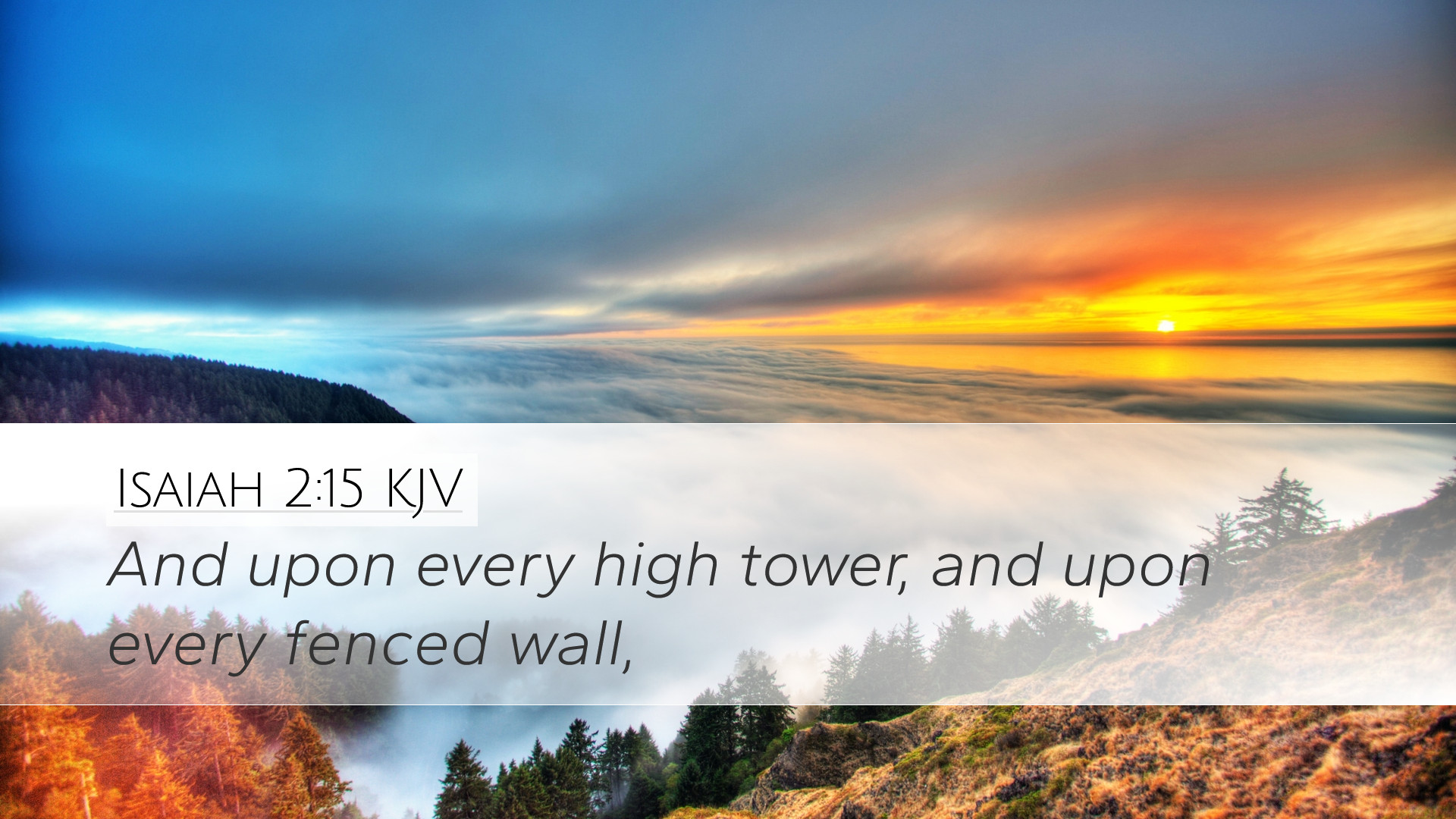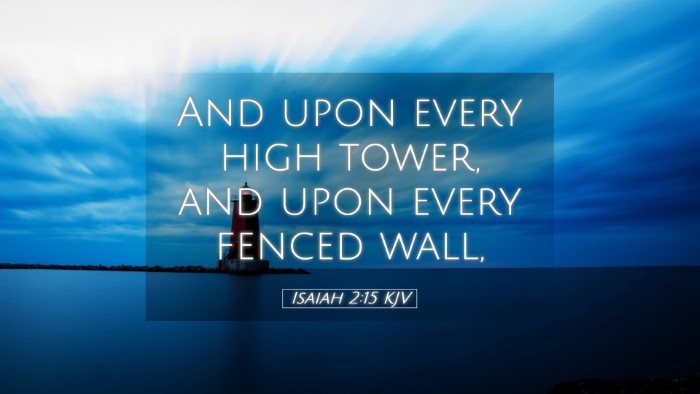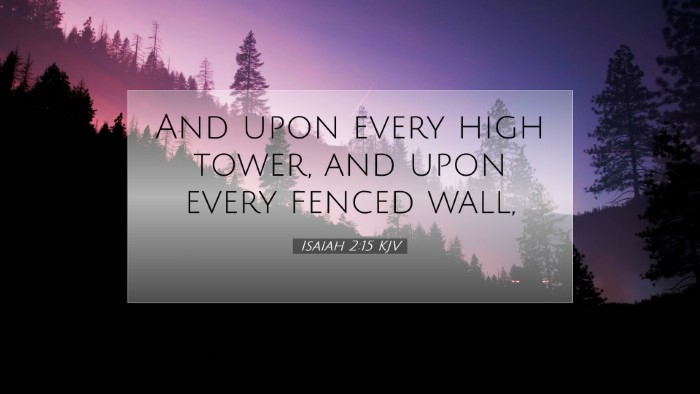Commentary on Isaiah 2:15
Verse Reference: Isaiah 2:15 - "And upon every high tower, and upon every fenced wall."
Introduction
The prophetic writings of Isaiah, laden with rich imagery and profound spiritual significance, present a stark warning and a call to humility before God. Isaiah 2:15, while seemingly simple, captures the gravity of Israel’s misplaced trust in physical structures—towering edifices that symbolize human pride and fortification against divine judgment.
Contextual Background
This verse appears in a larger context that speaks of the day of the Lord, where God’s judgment will be manifest upon all that stands against Him. Isaiah, through vivid metaphors, illustrates the futility of relying on man-made constructs when the Almighty decides to bring about His purposes. Here, we will draw from various public domain commentators to provide a comprehensive understanding of the implications of this verse.
Exegesis of the Verse
High Towers: In the ancient Near Eastern context, towers were often associated with strength and security. Matthew Henry elucidates how these structures symbolize human pride and the vain attempts to secure safety apart from divine help. The “high towers” indicate the lofty ambitions of humanity, striving to create impenetrable defenses against the inevitable day of God’s judgment.
Fenced Walls: Similarly, the "fenced walls" represent the enclosures that offer protection and stability. Albert Barnes comments on the futility of relying on these walls, suggesting that they might provide temporary security but will ultimately crumble when faced with the power of the Lord. Adam Clarke adds that these walls signify social and political structures that man trusts in, but which will be rendered powerless when the Lord arises in His might.
Thematic Insights
- Divine Judgment: A recurring theme in Isaiah’s prophecy is the judgment of God upon those who rely on worldly security. This verse encapsulates that theme, highlighting that even the tallest towers and strongest walls cannot withstand divine scrutiny.
- Human Pride: The mention of high towers reflects humanity’s pride. Henry warns that our achievements and constructs can lead to a false sense of security, causing individuals and nations to forget their dependence on God.
- Call to Humility: Implicit in the warnings of Isaiah is a call to humility. The towering structures remind us that we are finite beings in need of God’s grace and protection instead of our own unrighteous efforts.
Practical Applications
The implications of Isaiah 2:15 are profound for contemporary believers. Pastors and theologians are called to consider how modern-day equivalents of high towers and fenced walls manifest in our societies today.
- Evaluate Dependence on Secular Constructs: Just as the Israelites relied on their structures, today’s church should assess where it places its trust—be it in programs, finances, or human wisdom. This passage urges a return to reliance on God alone.
- Challenge to Faithfulness: For students and scholars, the verse encourages rigorous theological reflection on the nature of security and faith. It beckons an exploration of how reliance on God over worldly powers should reflect in our academic and spiritual pursuits.
- Encouragement to the Weary: To the believer facing challenges, Isaiah’s metaphor serves as a reminder that even the strongest protections can crumble, but God's faithfulness remains. Thus, they are invited to lean into God's everlasting arms.
Conclusion
Isaiah 2:15 succinctly encapsulates a critical message about human pride and the futility of relying on our constructs in the face of God's sovereign will. Drawing from the insights of Matthew Henry, Albert Barnes, and Adam Clarke, we are reminded that, while structures may offer temporary security, true safety resides in recognizing our dependence on God. As we reflect on this verse, may we be inspired to live in humility, steadfastly trusting in God's ultimate authority and grace.


